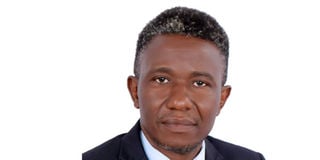Prime
Uganda’s Lumbuye, Nigeria’s Umaru Dikko and passing point of no return

Author, Gawaya Tegulle. PHOTO/FILE
What you need to know:
- Lumbuye knew that his life was in danger but still continued his crusade.
On July 5, 1984, a young lady was busy in her apartment in West London, when the corner of her eye registered an unusually quick movement on a street where things, for the last hundred years, had been known to be very slow.
She followed her instincts and dashed to the window, where she was just in time to see her boss Umaru Abdulrahman Dikko, whose tenure as Transport minister of Nigeria had ended on the last day of the previous year, thanks to a military coup, being bundled into a van that immediately sped off.
The secretary called 999 and the police, preliminarily seized of the view that this was the work of ordinary criminals, alerted Scotland Yard’s anti-terrorism outfit. Because of who Dikko was, British prime minister Margaret Thatcher was also briefed – wrongly it turned out, because in the van, Dikko was immediately handcuffed, his legs were chained together – as a huge, heavy chap sat squarely and comfortably on his head - and he was injected with a sedative that knocked him out cold.
The kidnappers had made a few pedestrian mistakes. One, the night before, an empty Nigerian Airways Boeing 707 had arrived at Stansted Airport. The pilot claimed he had come to collect “special diplomatic baggage” from the Nigerian High Commission. Two, on board were several security guards, intended to “protect” the baggage.
The British were suspicious. They said nothing, but quietly made an entry into Scotland Yard’s books…and waited. The third mistake was obvious – kidnapping Dikko violently, creating drama on a quiet street. So when Elizabeth Hayes called 999, the cops quickly put two and two together; and immediately put all possible exit points in Britain on red alert to check all Nigeria-bound traffic.
Dikko, who had escaped from Nigeria dressed as a priest, had made the dictatorship extremely unhappy with his relentless activism, calling for international assistance to restore democracy in his country.
He was put in a large crate labelled “diplomatic baggage” with a forwarding address as the Nigerian Ministry of External Affairs, Lagos. Diplomatic cargo is immune to checks, generally, so two large crates were transported to Stansted airport and placed on the waiting Nigerian cargo plane.
The plane was about to take off, but one stubborn British customs officer insisted on opening the cargo, even when Nigerian intelligence and diplomatic staff protested vehemently – as only Nigerians possibly can – citing diplomatic immunity. Anti-terrorism police surrounded the plane and evacuated airport staff. The customs officials then opened the two crates. In the first, they found Dikko, lying unconscious, under the watch of the doctor who had sedated him.
His brief was to ensure that Dikko didn’t die on the plane. His enemies in Nigeria wanted him alive. In the second crate they found two of the kidnappers, who’d only used the crates to safely get on board the aircraft.
Diplomats cannot be jailed unless their immunity is waived by the sending state. So Britain immediately expelled two Nigerian diplomats, including the High Commissioner. Diplomatic relations between the two countries broke down for a long while.
For their troubles, four people involved in the kidnapping were tried and convicted by a court in London – and jailed. It was extremely embarrassing for Nigeria – which to their shame, retaliated by grabbing two British engineers in Nigeria and jailing them for 14 years for, hold your breath, stealing a plane! The British engineers were later released.
Nigeria eventually made a formal extradition request (which they should have done in the first place, had there been genuine charges against Dikko), but the British refused.
I recalled this story when news broke through that Fred Lumbuye, fierce critic of the Ugandan dictatorship, had been kidnapped in Turkey. When a mother is being raped, her children no longer care what happens when they fight back; because the pain of keeping quiet and doing nothing when your mother is being violated is far greater than the fear of what the violators can do to you when they get hold of you.
When a country has been looted, abused and desecrated, things reach a point of no return, when patriots no longer fear for or care about their safety. Lumbuye, who knew that his life was in danger but still continued his crusade, had long passed that point.
Mr Tegulle is an advocate of the High Court of Uganda [email protected]



